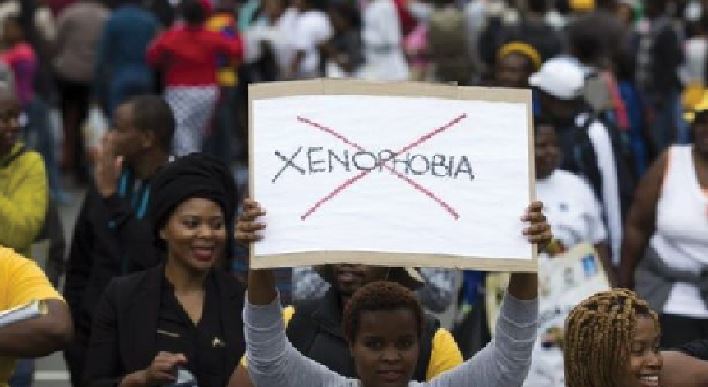
SOUTH African President Jacob Zuma’s remarks that his country could not be entirely blamed for the recent xenophobic attacks, were ill-timed as they were issued at a time when many people were still battling to come to grips with the horror of the attacks, analysts have said.
BY PHILLIP CHIDAVAENZI
President Zuma, who was miffed by Nigeria’s decision to recall its acting High Commissioner to South Africa and its ambassador in protest against the attacks, said other African countries whose nationals were pouring into South Africa in search of greener pastures were equally to blame.
South African-based Zimbabwean human rights lawyer, Daniel Molokele said there was need to deal with the root problems driving thousands of foreigners into Africa’s economic power house.
“I agree with Zuma’s sentiments. As long as more African refugees continue to flow into South Africa, then the locals will also continue to get more angry and frustrated,” he said.
“We must confront both xenophobia and the original causes that make people seek refuge in South Africa.”
Media Centre director Ernest Mudzengi said while Zuma spoke hard-hitting truth, he probably needed to consider the timing of his statement . “I think he is right. But unfortunately, the timing was wrong. Why should he say something like that now when people are dying? He should have been pro-active,” he said.
“In this context, it appeared as if he was giving an excuse for the deaths of those people.”
- Chamisa under fire over US$120K donation
- Mavhunga puts DeMbare into Chibuku quarterfinals
- Pension funds bet on Cabora Bassa oilfields
- Councils defy govt fire tender directive
Keep Reading
Zimbabwe Exiles Forum chairperson Gabriel Shumba called on the South African government to work with civil society and implement recommendations made in the aftermath of the 2008 xenophobic attacks.
“African people are targeted for various crimes, including rape. Their crime is to be here in South Africa. Borders are only artificial colonial demarcations that have nothing to do with the essence of being Africa,” Shumba said.
Political analyst Takura Zhangazha last week said Zuma’s statements on xenophobia had far-reaching connotations for migration in the region.
“This is mainly because his [Zuma’s] statements laid primary claim to South African ‘exceptionalism’ after he accused neighbouring governments of causing increased influxes of their citizens to his country due to bad governance,” he said. Zhangazha said Zuma’s remarks could be interpreted to mean that his country was exempted from accusation.
He said such a response must give cause for reflection beyond collective condemnation of the tragic xenophobic attacks.
“Knee jerk responses, closing of borders, harassment of travellers will only alleviate symptomatic challenges around the issue which does not appear to be showing signs of long-term dissipation,” he said.
MDC president Professor Welshman Ncube also tore into Zuma, describing the South African president’s rhetoric question as “all wrong, coming at the wrong time from the wrong person”.
Ncube however did not exonerate other African governments, including Zimbabwe, whose nationals poured into South Africa because of the unpalatable conditions back home.
“Answers must not only come from Pretoria. Where is Harare? Maputo? Abuja? Mogadishu? What is freedom? And what is the meaning of freedom if citizens of a sovereign state are reduced to beggars without integrity in foreign lands?”











